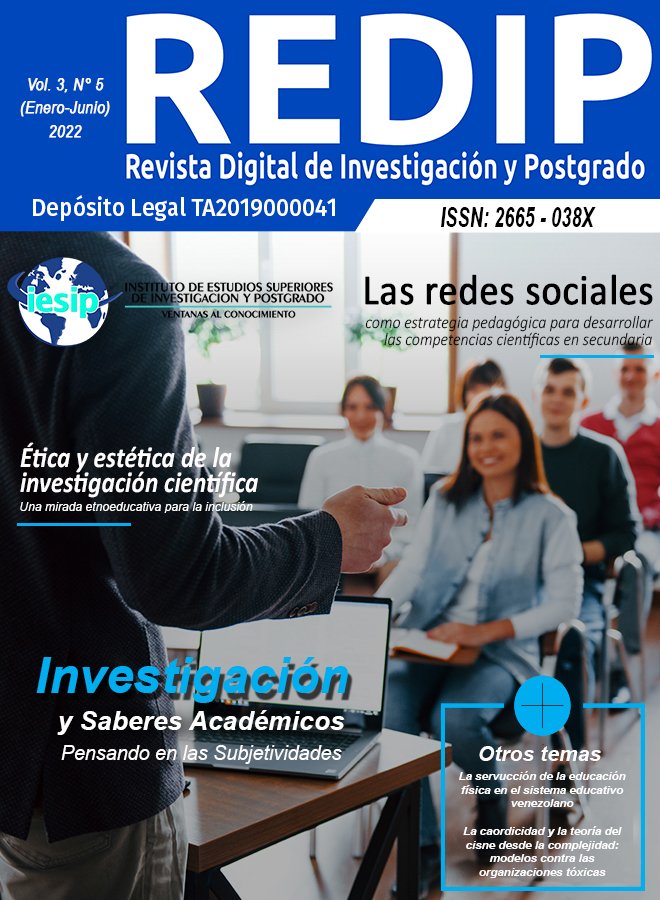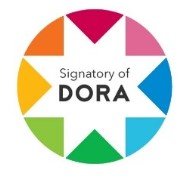Social networks as a pedagogical strategy to develop scientificcompetences in secondary
DOI:
https://doi.org/10.59654/4r9b4w60Keywords:
Social networks, scientific competences, secondary education.Abstract
However, in the educational institutions of Tenerife, Department of Magdalena (Colombia), educational
processes are still anchored to traditional strategies and rote learning, not taking into account the motivational characteristics that technologies have on young people, especially when it comes to social networks. Hence, these could become a pedagogical strategy for developing scientific competences, in terms of secondary school students, who use them for entertainment and communication purposes. For this reason, the study aimed to propose social networks as a
pedagogical strategy for developing scientific competences in secondary schools. The methodology
was typified as projective, which corresponds to the positivist paradigm with a quantitative approach, as it proposed an alternative solution to the problems presented. The design was nonexperimental
fieldwork. The data collection instrument was a questionnaire structured in 36 items with four response alternatives, applied to a sample of 56 science teachers and 123 grade 11 students. The results showed that 58% of the students in Tenerife's educational institutions tended to learn by rote, 32% to the reflective type, and in relation to the channel of perception, 55% of teachers and students (averaging their responses) agreed that the kinaesthetic type was the most commonly used, the same weighting was given to the auditory type and 32% to the kinaesthetic
type. Finally, in relation to teaching strategies, 87% of teachers stated that social networks facilitate
interaction, promote interaction and dynamise educational processes. Meanwhile, students find
them fascinating and innovative for learning.
Downloads
References
Arévalo, M. (2021). Instagram como herramienta de innovación para la enseñanza de la lengua castellana. Universidad Internacional de La Rioja. Facultad de Educación.
Barrios, M. (2017). Herramientas web como estrategia pedagógica para desarrollar el pensamiento científico en estudiantes de secundaria de Tenerife Magdalena. (Tesis Doctoral). Universidad Rafael Belloso Chacín. Maracaibo-Venezuela.
Cabero, J. y Ruiz-Palmero, J. (2018). Las Tecnologías de la información y la comunicación para la inclusión: reformulando la brecha digital International. Journal of Educational Research and Innovation (IJERI), 9, 16-30.
Castro, S., Guzmán, B. y Casado, D. (2007). Las Tic en los procesos de enseñanza y aprendizaje.
Laurus, 13 (23), 213-234. https://www.redalyc.org/articulo.oa?id=761 /76102311
Islas, C. y Carranza, M. (2011). Uso de las redes sociales como estrategias de aprendizaje. ¿Transformación educativa? Revistas Apertura Nueva Época. 3(2). https://www.udgvirtual.udg.mx/apertura/index.php/apertura/article/view/198/213
Negroponte, N. (1995). El Mundo digital. Barcelona: Ediciones B.
Tobón, S., González, L., Nambo, J. S., y Vázquez, J. M. (2015). La socioformación: un estudio conceptual. Paradigma, 36(1), 7-29.
UNESCO (2017). Las TIC en la educación. https://es.unesco.org/themes/tic-educacion.
Downloads
Published
Issue
Section
License
Copyright (c) 2021 Revista Digital de Investigación y Postgrado

This work is licensed under a Creative Commons Attribution-NonCommercial-ShareAlike 4.0 International License.
Esta licencia permite a los reutilizadores distribuir, remezclar, adaptar y desarrollar el material en cualquier medio o formato únicamente con fines no comerciales, y solo siempre que se atribuya al creador. Si remezclas, adaptas o construyes sobre el material, debes licenciar el material modificado bajo términos idénticos. CC BY-NC-SA incluye los siguientes elementos:
![]() POR: se debe dar crédito al creador.
POR: se debe dar crédito al creador.![]() NC: Sólo se permiten usos no comerciales de la obra.
NC: Sólo se permiten usos no comerciales de la obra.![]() SA: Las adaptaciones deben compartirse en los mismos términos.
SA: Las adaptaciones deben compartirse en los mismos términos.











